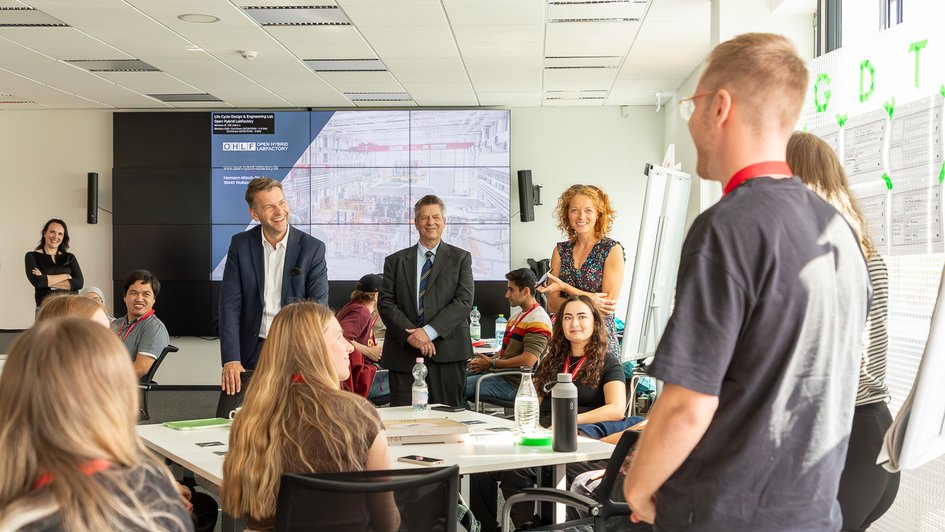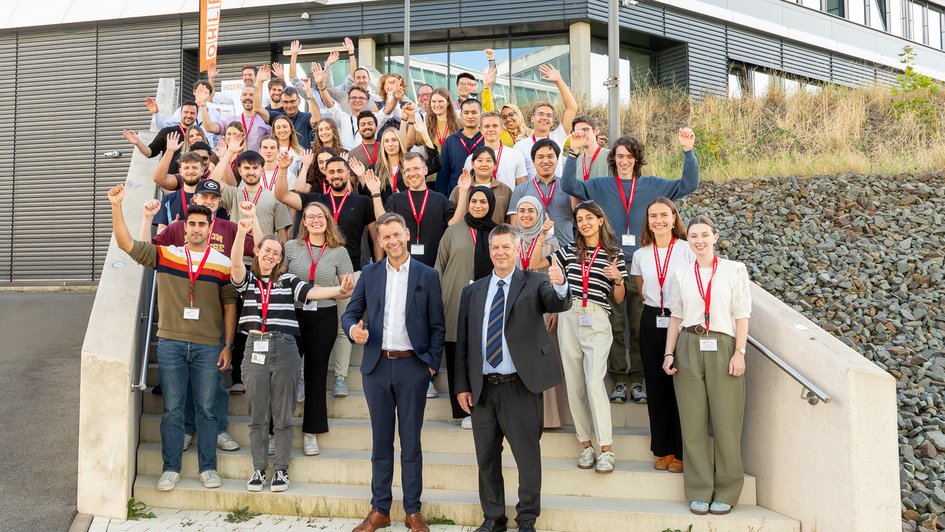Ostfalia University, the Technical University of Braunschweig, the Open Hybrid LabFactory and the Fraunhofer CCEM are bringing together students from various disciplines to develop ideas for sustainable automotive production. This is because the automotive industry is facing a profound change, which is also becoming visible at the Wolfsburg site: In future, vehicles are to be developed and produced in such a way that the materials used remain in the cycle for as long as possible. This requires new concepts for recyclable materials as well as manufacturing and dismantling processes that take reuse and recycling into account from the outset.
Key questions for the future of the automotive industry
How can vehicle components be designed so that they can be repaired and recycled more easily? Which robot-assisted processes make it possible to efficiently dismantle and return vehicle parts at the end of their useful life? Which materials are particularly suitable for recycling and reduced resource consumption? What economic effects arise along the material chain from raw material to recycling? - These are the questions that students are tackling in interdisciplinary teams, supported by experts from science and industry.
The Summer School is supported by TU Braunschweig, OHLF e. V., Ostfalia University, the Fraunhofer Centre Circular Economy for Mobility CCEM, Volkswagen, the City of Wolfsburg and other partners. Together, they will organise workshop formats and experiments on an industrial scale, thus providing direct practical relevance. The programme is supplemented by guest lectures and excursions to regional companies. This gives students an insight into industrial strategies and topics such as production, utilisation and current developments in battery production.
Significance for Wolfsburg and the region
The development of the Wolfsburg Joint Campus is an important strategic goal of the city of Wolfsburg as part of its "Future Concept for Science". It envisages the long-term establishment of scientific institutions to strengthen the city and region.
Dennis Weilmann, Lord Mayor of Wolfsburg, is therefore also delighted that the first summer school has been organised: "An important milestone has been reached in establishing Wolfsburg as a research and training location for the circular economy. With our involvement in this joint project, we are supporting the transformation of the automotive industry and providing trend-setting impetus for the future of Wolfsburg as a business location."
Prof. Dr. Ina Schiering, Vice President for Research, Development and Technology Transfer at Ostfalia University, emphasises the importance of the Joint Campus Wolfsburg: "We are delighted to be able to contribute our expertise in the areas of mobility and the circular economy, which are strategically important to us, to this partnership. Even more intensive interdisciplinary cooperation strengthens the Wolfsburg location, where we as Ostfalia are represented locally with around 2,400 students in three faculties."
Angela Ittel, President of TU Braunschweig, says: "With the construction and permanent establishment of the campus, we as a university are sending a clear signal - on the one hand for our research focus on mobility and on the other for the forward-looking cooperation between our university and the regional economy."
About the Joint Campus Wolfsburg
The Joint Campus Wolfsburg was established by the Technische Universität Braunschweig together with the Open Hybrid LabFactory, the Ostfalia University of Applied Sciences and the Fraunhofer-Gesellschaft as scientific partners as well as Volkswagen and the city of Wolfsburg with the support of the state of Lower Saxony. The campus is set to become a regional and international flagship location in the automotive circular economy - with strong research expertise as well as study, further education and transfer programmes.


